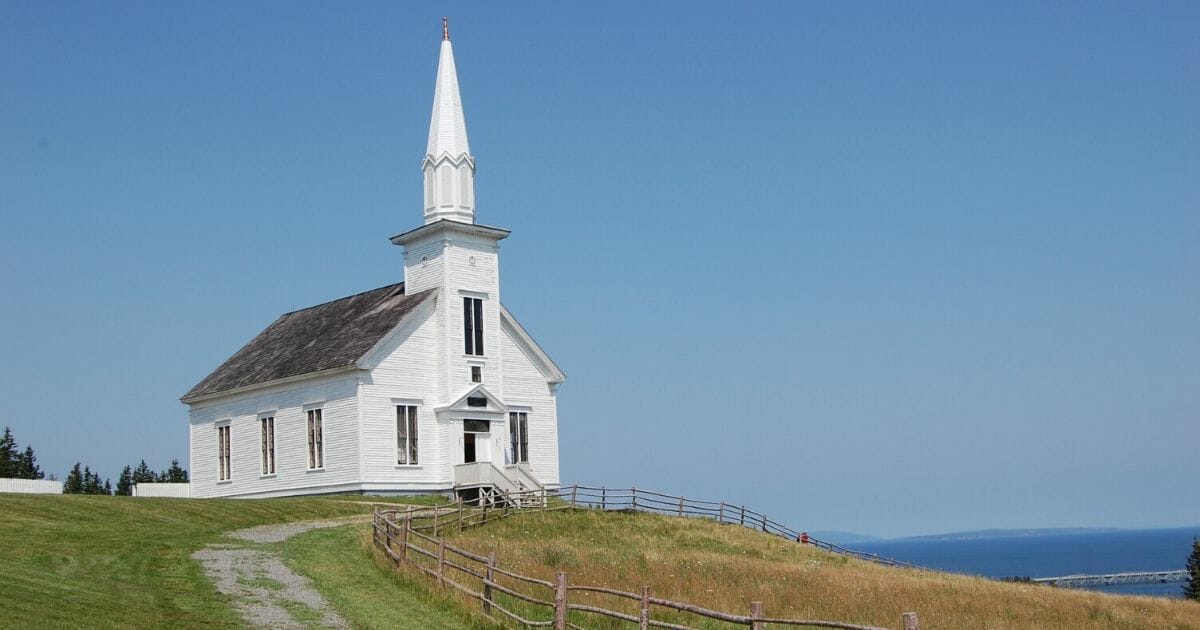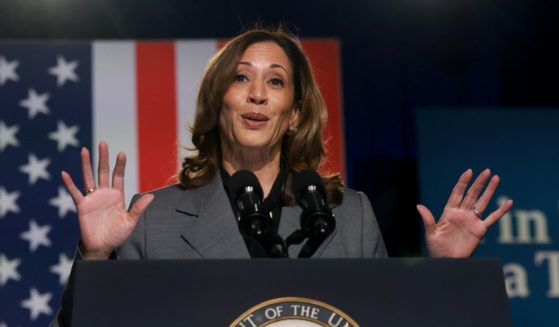
First Amendment Triumphs Over TX Judge Who Tried To Shut Down Church Services
I understand the desire to cloister people in their homes to prevent coronavirus spread. The quicker we establish some semblance of control over the virus, the quicker we can get out of lockdown and out of the economic and psychic death spiral the country — indeed, the world — is in right now.
That said, we’ve allowed essential services to stay open. That includes the usual services — grocery stores and pharmacies — as well as some unusual things. In New Jersey, for instance, print shops and liquor stores are open. Yet — as in many other states — churches, synagogues, mosques and other places of worship weren’t considered essential.
This is one of the battles that’s going to play out across the country the longer coronavirus stay-at-home orders are in place, particularly since any church that holds service is being demonized by both politicians and the media.
They can socially distance, they can hold it in a parking lot with people so far apart they can’t touch each other with bargepoles — it doesn’t matter. The right to assemble and the freedom of religion are pretty much worthless to people willing to risk infection for a pack of White Claws.
In Harris County, Texas — the county in which Houston is located — the legal battle over whether the First Amendment right to assemble still holds true under a pandemic is raging.
One judge’s answer to that question was a decisive “no,” and a conservative pastor has been working to get her ruling overturned. His lawsuit against the judge’s order was one of the things that prompted Texas Gov. Greg Abbott to act, declaring churches essential businesses.
The judge adjusted her order accordingly and churches can now meet in person if they choose, albeit while exercising Centers for Disease Control and Prevention guidelines for distancing and hygiene.
The lawsuit continues apace, but the victory may have already been won.
So first, the issue: Harris County Judge Lina Hidalgo had ruled that churches wouldn’t be able to convene under the state’s stay-at-home order since churches weren’t listed under “essential business.” Steve Holtze, a longtime conservative activist, along with fellow pastors Juan Bustamante, George Garcia and David Valdez, contested the ruling, according to the Houston Chronicle.
“The First Amendment guarantees our God-given unalienable rights to worship and to peaceably assemble. Neither of these rights are contingent upon our health status,” a copy of a speech given at a news conference by the plaintiffs and provided to The Western Journal read.
“These rights have been abrogated in many states, counties, and cities across the nation by petty, two-bit politicians who have delusions of grandeur. These politicians are not solving the problem. In fact, they are making it worse.
“In Harris County, where Houston is located, County Judge Lina Hidalgo issued a ‘Stay Home’ order last week mandating that all ‘non-essential’ businesses close. In the order, she also prohibited churches from holding services. The penalty for violating the order is up to one year in prison and a $1,000 fine.”
Bustamante was one of the pastors hurt by the state’s crackdown on churches that hold service.
“On Sunday, March 29, 2020, Pastor Juan Bustamonte of the City on a Hill Church held services at his sanctuary in Houston in defiance of the county judge’s order,” the speech read.
“During the service, police officers and a fire marshal arrived and instructed Pastor Bustamonte to disband the service. He refused. He was issued a citation.
“Under the guise of a public health emergency, our constitutional rights are being denied. Pastors and Christians should be up in arms.”
Abbott, meanwhile, quickly rectified the situation by including churches as an “essential business” in an executive order — something that led Hidalgo to quickly revise her plan to shut down the state’s churches.
In guidance from the Texas attorney general’s office, Abbott’s administration made it clear that houses of worship were afforded special protection under the law.
“The First Amendment to the United States Constitution and Article I of the Texas Constitution protect the right of Texans to freely exercise their religion,” the guidance read.
“In addition, the Texas Religious Freedom Restoration Act (‘RFRA’) provides even stronger protections to faith communities, and government must ensure that it complies with RFRA when it acts.
“Thus, when state or local governments issue orders prohibiting people from providing or obtaining certain services, they must ensure that these orders do not violate these constitutional and statutory rights.”
Hidalgo’s new guidance would “permit in-person religious services that comply with the CDC’s guidelines.” Hotze and his pastors, however, are still suing, in part because of penalties Hidalgo’s version of the rules impose that Abbott’s does not and because the judge’s wording could mean that the guidance is meaningless.
“The plaintiffs are continuing to challenge Hidalgo’s order in state district court, Woodfill said, in part because it imposes penalties — up to 180 days in jail and a $1,000 fine — that Abbott’s does not,” the Chronicle reported.
“Per the Texas Attorney General’s guidance on this topic, if religious services cannot be conducted from home or through remote services, then religious services may be conducted in churches, congregations and houses of worship,” Hidalgo’s ruling read.
“Just about every church has the ability to do that,” Jared Woodfill, the group’s attorney, said.
“Maybe there are some small churches that don’t. That doesn’t mean your parishioners have internet or the ability to access the service. We think that’s clearly government coming in to the church and issuing edicts and mandates that are an infringement on religious liberties.”
Thus, the plaintiffs asked the Texas Supreme Court to dismiss their lawsuit so they could refile in state court. The case could be key in deciding how far religious liberties can be tamped down in a time of emergency, particularly if it makes it to the U.S. Supreme Court.
If you need a quick explainer, Hotze and Woodfill put out a video explaining why they think the order is unconstitutional.
Meanwhile, the Chronicle reported that “[c]ity and county officials have said they do not intend to fully enforce the penalties and are first seeking voluntary compliance, before resorting to a criminal charge.”
That’s nice, but that’s also the same line we heard from Pennsylvania authorities when they said they weren’t looking to enforce penalties and sought voluntary compliance with a stay-at-home order.
Then, a state police officer gave a citation a 19-year-old for going out for a drive even though she never got out of her car or put anyone in danger.
Different state, granted. However, if authorities can do that to a teen driver with impunity, they can do it to a church and its congregants, too. After all, they did it to Juan Bustamante.
There’s a reason why freedom of religion is considered one of the paramount rights we have as Americans. Without the freedom to worship, to give thanks to our creator as we see fit (or not, for that matter), there isn’t much else there.
We live in a world where liquor stores are considered an essential business. I understand the general principle behind it — you don’t want alcoholics with delirium tremens because of a forced detox taking up ICU beds at the same time you’re trying to fit coronavirus patients into those beds, too.
However, the right to alcohol isn’t enshrined in the Constitution. The freedom of religion is.
This isn’t to say that I endorse going to in-person church services; if my church even offered them, I would stay far away, but it’s not my job to decide how much constitutional freedom someone else is using up. I would also say that churches have to take extreme measures to guard against infection, including a plan on how they’ll engage in radical social distancing.
That said, I wonder how many people will even come — although that’s not the point.
If we give this freedom up now, it’ll be that much easier to take away from us in the future in an emergency that isn’t as dire as the coronavirus pandemic.
Constitutional rights aren’t abrogated all at once, generally. The rope is taken from us bit by bit.
Thankfully, Abbott’s decision to label churches as essential businesses seems to have averted a major crisis. He’s done those of us who still believe in a thing called limited constitutional government an enormous favor.
Truth and Accuracy
We are committed to truth and accuracy in all of our journalism. Read our editorial standards.
Advertise with The Western Journal and reach millions of highly engaged readers, while supporting our work. Advertise Today.












